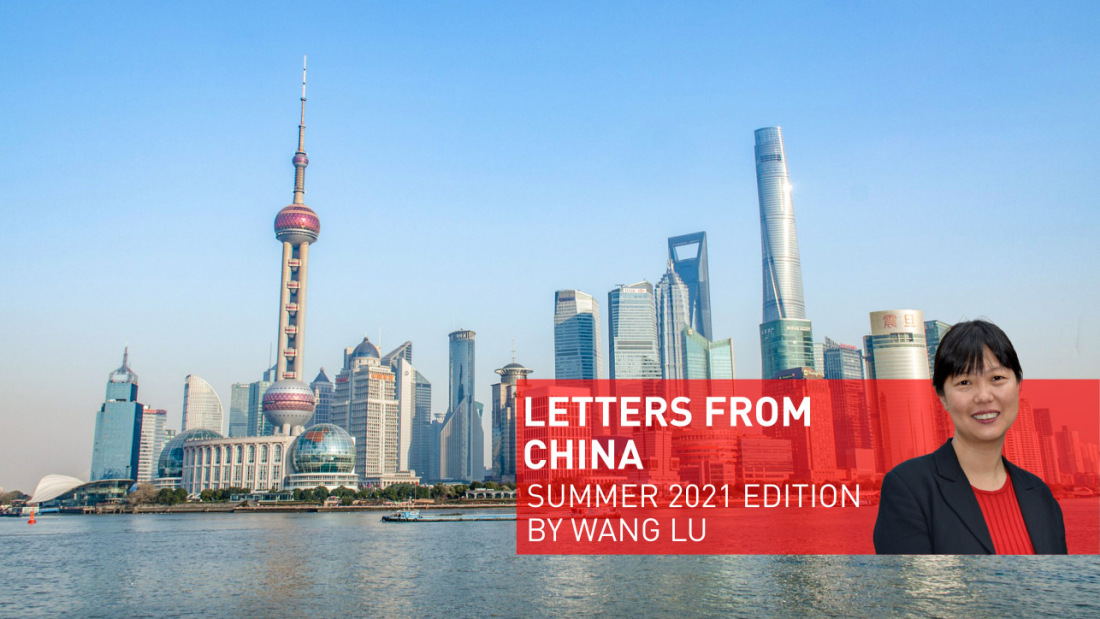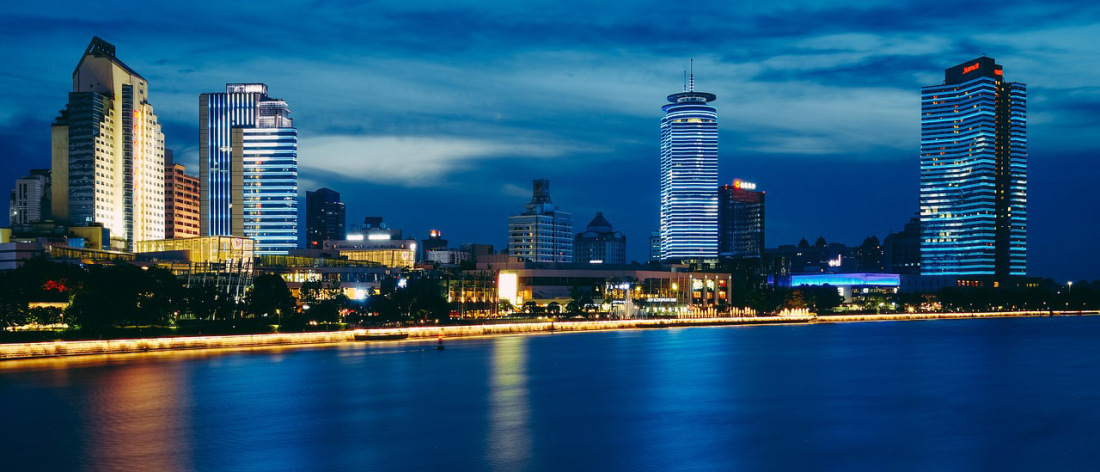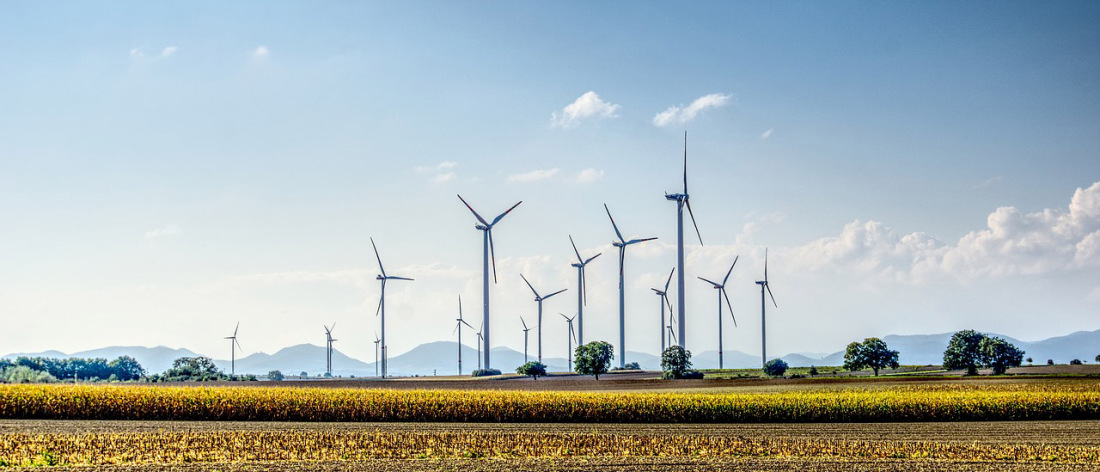Letters from China: Summer 2021 Edition
Investing in BremenNews and information about business and investments in China

Extreme reactions to new corona virus cases, the triumphant march of meat alternatives and business opportunities for german companies in the environment sector – find out more in our Letter from China.
Wang Lu, the Director of our Breminvest office, sends quarterly reports from Shanghai with overviews of the latest trends, opportunities and developments in the country.
Our China Summer 2021 News:
Zhejiang – where the world-wide trade in consumer goods starts

During the Corona virus crisis, the port city of Ningbo hit the headlines in August 2021: the majority of operations at the harbour were brought to a standstill due to a single case of the virus. As the world's third largest port, with an annual transshipment volume of 27 million TEUs (container units), this decision had consequences for the entire global economy.
But why has Ningbo, a city that very few westerners have ever heard of, become so important? Ningbo is in a strategically important location, being both very close to Shanghai and also functioning as the export port for one of China's most important economic centres, the province of Zhejiang. With a land area no greater than that of Iceland, this province in the East of the country is home to 64 million inhabitants, its mountainous geography being a contributory factor to its high population density: Densely built-up areas cover the province's valleys and coastal plains.
Zhejiang is China's light industry centre and is the province with the fourth highest GDP. Shoes and textiles, domestic appliances and small electrical devices, plastics and all types of consumer goods all come from here. The chemicals industry and construction materials are other important sectors. For historical and economic reasons, many of the companies located here are medium-size enterprises. It was during the colonial era that companies were first established here. Those that survived the revolution found themselves in pole position for rapid growth when China opened up. As in other East Asian countries, it was the consumer goods export industry that was responsible for this meteoric economic growth.
Alongside the "shoe city" of Wenzhou, which produces around 1.5 billion pairs annually, the inland trading city of Yiwu is regarded as one of the most important centres of commerce in the province. This is where you'll find the world's largest wholesale shopping centre, which houses more than 70,000 shops on a site the same size as 70 football fields. Yiwu has a multicultural ambience and many international traders have made their homes here. The city is also a central logistics centre and part of the "Belt and Road Initiative". It is the starting point for many of the trains travelling to the West along the new Silk Road.
Thanks to its significance for international trade, Zhejiang is also a popular destination for foreign investment. The province has excellent infrastructure and a multitude of special economic zones or free trade zones which have been set up to attract companies from abroad.
Corona virus gaining ground again – China pulls up the drawbridge

Following an outbreak of the Delta variant of the Corona virus in Nanjing and its spread in other provinces, parts of China are once again going into a hard lockdown. As a result, mass testing, travel restrictions, the closure of public buildings and tourist attractions and the postponement of the start of the academic semester are once again part of normal life for many Chinese people. And all that is due merely to an exceptionally low (two-digit or low three-digit) number of cases (absolute numbers, not incidence rates!). Quarantine centres with 5,000 independent isolation rooms are being built in cities such as Guangzhou.
It's clear that China is continuing with its strict "zero cases" policy, involving stringent restrictions on the economy and the population as a whole. This also has consequences for the global economy (see previous point).
Western companies that trade with China have long ago adapted to the travel restrictions that make business trips almost impossible. At least 14 days quarantine + 7 days health monitoring for anyone arriving from abroad is enough to scare off most people – which is, of course, the intention. According to a number of experts, these travel restrictions may be in place for some time to come, some believing that we won't see relaxations until the second half of 2022. This is because the Chinese vaccination campaign is progressing slowly. The country's own Sinovac vaccine is less effective than its Western equivalents and the aim is to achieve herd immunity, which is currently thought to be achieved when 85 percent of the population have been fully vaccinated.
According to Germany Trade & Invest (GTAI), these restrictive policies can also be linked to increasing support for domestic markets – a declared objective of the current Five Year Plan. Domestic Chinese companies now have geographical advantages over their Western competitors, which are unable to send their own staff to their Chinese sites or visit trade fairs, strengthening the position of the local economy.
German companies sought as partners in the environmental technology sector

Getting started in the Chinese market is nothing like as easy as it once was. Companies have to contend with many unfamiliar factors: preference, social conventions, access channels, target markets – and all in an enormous country with domestic competition which operates at a world-class level in many areas.
For these reasons, establishing cooperative ventures with local businesses and taking advantage of investment incentives can be the right way to achieve initial targeted access to the Chinese market. It's just this type of approach that's offered by the China International Investment Promotion Agency (CIIPA) (only in german).
For example, the CIIPA is currently setting up a working group that will cover the environmental technology, waste management and energy efficiency sectors. This working group will include representatives from local Chinese administrative bodies and business parks, German business development agencies, universities and research institutes and companies from both Germany and the PRC. Companies will benefit from free membership of this working group: in addition to running annual events such as specialist congresses and matchmaking meetings, the CIIPA will initiate joint projects between interested parties, coordinate queries and requirements and manage a shared database.
Companies that are interested in the working group can find out more by contacting Shirley Liang, Head of Public Relations, at shuanglin.liang@ciipa.de.
Alongside the new Environmental Technology Working Group, companies can also join existing groups that cover topics such as Smart Manufacturing, Automotive and Medical Technology.
Meat alternatives – on the road to success in China too?

In our last Letter from Silicon Valley, we reported about the global boom in alternatives to meat. These developments are also making themselves felt in China, even if in a rather different way.
In the West, alternatives to meat and fish have enjoyed greatest popularity in processed ready meals as chicken nuggets, hamburger patties, fish fingers, meat strips and the like. The meat in these dishes is in small pieces and is often highly spiced, which makes replacing it with a plant-based alternative much easier than trying to imitate unprocessed meat in the form of steaks or fish fillets.
Although these fast food dishes are popular with people in China, they're not part of everyday food culture. Chinese cuisine, with its many different ways of cooking, steaming, frying, deep frying or stir frying food is a real challenge to meat alternatives. And that's not forgetting that China has its own alternatives to meat such as tofu, whose long tradition of use makes it a direct competitor to new products.
For these reasons, companies have been looking for joint projects with restaurant chains or outlets for selling Western-inspired ready meals, which have also found a market in here, as a means of introducing their products to China. For example, Cargill, the American food giant, has launched PlantEver, a Chinese brand which includes plant-based chicken nuggets and hamburger patties. The Beyond Meat start-up started out with a cooperative venture with Starbucks before putting its own products on supermarket shelves.
Domestic competition is also increasing. Chinese brands such as Omnifoods or Starfield are developing their own protein alternatives, with the aim of making them closer to the taste of traditional Asian dishes. Both companies offer vegan mince for use in meatballs or wok dishes or as the filling for dim sum.
Both approaches still have a long way to go before they reach the mass market, and consumers are still reacting to them rather cautiously. However, there are opportunities, especially in the larger cities whose citizens are more open minded about new products. In addition to taste and texture, the price is also a decisive factor: consumers are put off by the price of meat alternatives, which are often much more expensive than the original product.
This is why some manufacturers are looking for endorsements by influencers and TV celebrities to win over new customers. This is a very promising marketing strategy because so many consumers in China can be reached by social media.
Success Stories
Bremen’s Economy in Figures: Statistics 2025
The State of Bremen is a strong economic hub. A look at the latest statistics highlights its economic strength — summarising key data such as cargo volumes, export performance, industry turnover, and more.
Learn moreMedium-Sized Companies in Bremen Showcasing the Full Range of the Local Economy
Medium-sized companies form the backbone of Bremen’s economy. They create jobs and produce goods that are in demand worldwide. Here is a selection of ten businesses that illustrate the diversity of Bremen’s economic landscape.
Learn moreTwelve international food and beverage companies in Bremen
Becks and Melitta may be high-profile brands, but international food and beverage companies also manufacture lots of other products in Bremen and Bremerhaven. Here are twelve examples.
Learn more

